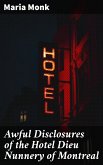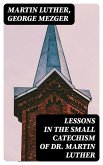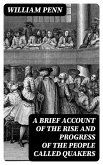In "Awful Disclosures of the Hotel Dieu Nunnery of Montreal," Maria Monk provides a harrowing narrative that exposes the inner workings of the Catholic convent system in 19th-century Canada. Written in a confessional style, Monk's account blends autobiography with sensationalism, highlighting her traumatic experiences within the nunnery. The book integrates detailed descriptions of alleged abuses, secret practices, and the oppressive atmosphere under which the nuns lived, situated against the backdrop of growing anti-Catholic sentiments in Protestant North America. Its foundational themes resonate with contemporary discussions on women's rights and religious autonomy, framing the Catholic Church's institutional power as a site of oppression rather than sanctity. Maria Monk, a once-inhabitant of the Hotel Dieu Nunnery, drew upon her own tumultuous experiences to craft this provocative expose. Having left the convent, Monk became an advocate for those who faced similar sufferings, leveraging her voice to question the patriarchal structures upheld by the Church. Her writings were pivotal in stirring public discourse and skepticism towards Catholic institutions, revealing deep-seated societal rifts and religious tensions of her time. "Awful Disclosures" is essential reading for those intrigued by women's history, religious studies, and social justice. Monk's compelling narrative not only offers a window into a little-explored facet of Canadian history but also challenges readers to confront the implications of institutional power on individual freedom. This book serves as a crucial testament to resilience and the struggle for autonomy in the face of systemic oppression.
Dieser Download kann aus rechtlichen Gründen nur mit Rechnungsadresse in A, B, BG, CY, CZ, D, DK, EW, E, FIN, F, GR, H, IRL, I, LT, L, LR, M, NL, PL, P, R, S, SLO, SK ausgeliefert werden.









